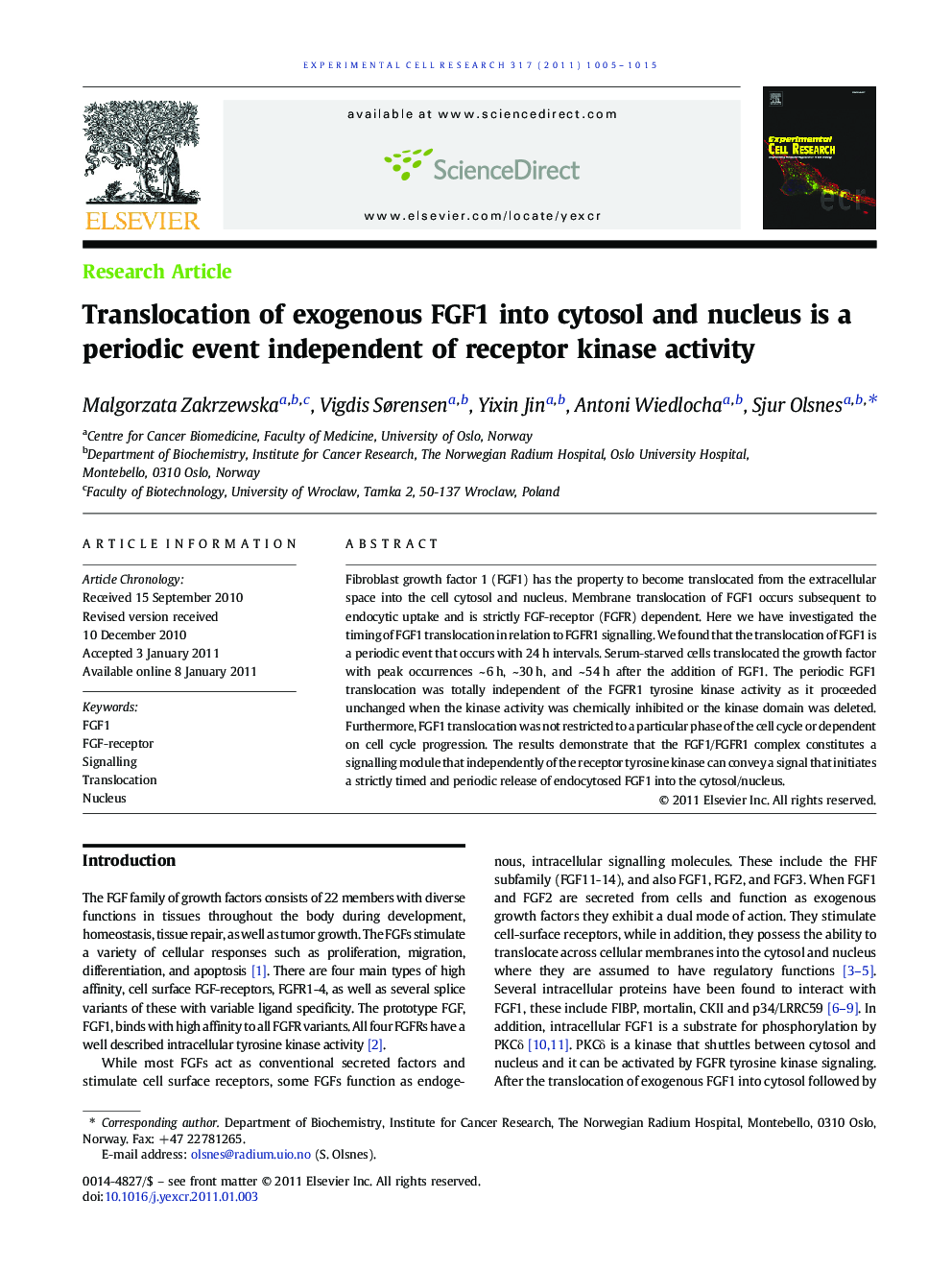| Article ID | Journal | Published Year | Pages | File Type |
|---|---|---|---|---|
| 10904560 | Experimental Cell Research | 2011 | 11 Pages |
Abstract
Fibroblast growth factor 1 (FGF1) has the property to become translocated from the extracellular space into the cell cytosol and nucleus. Membrane translocation of FGF1 occurs subsequent to endocytic uptake and is strictly FGF-receptor (FGFR) dependent. Here we have investigated the timing of FGF1 translocation in relation to FGFR1 signalling. We found that the translocation of FGF1 is a periodic event that occurs with 24Â h intervals. Serum-starved cells translocated the growth factor with peak occurrences ~Â 6Â h, ~Â 30Â h, and ~Â 54Â h after the addition of FGF1. The periodic FGF1 translocation was totally independent of the FGFR1 tyrosine kinase activity as it proceeded unchanged when the kinase activity was chemically inhibited or the kinase domain was deleted. Furthermore, FGF1 translocation was not restricted to a particular phase of the cell cycle or dependent on cell cycle progression. The results demonstrate that the FGF1/FGFR1 complex constitutes a signalling module that independently of the receptor tyrosine kinase can convey a signal that initiates a strictly timed and periodic release of endocytosed FGF1 into the cytosol/nucleus.
Keywords
Related Topics
Life Sciences
Biochemistry, Genetics and Molecular Biology
Cancer Research
Authors
Malgorzata Zakrzewska, Vigdis Sørensen, Yixin Jin, Antoni Wiedlocha, Sjur Olsnes,
